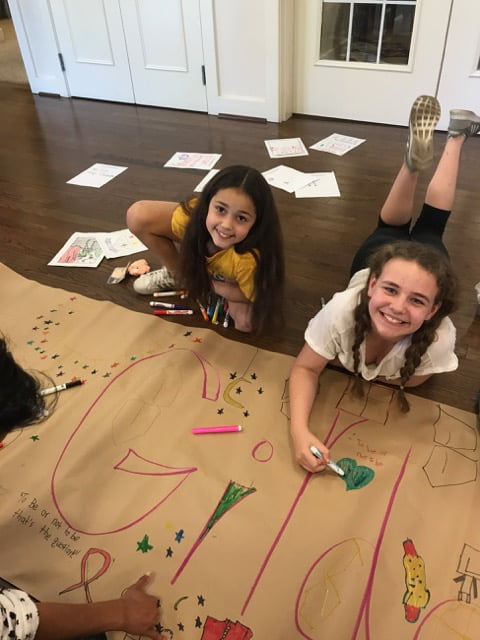Inclusive Communication
“People-First” Language
It seems so simple. Think of the person, not the disability. Thinking of the person first will allow the disability awareness to come quite naturally. To help you along, here are two excerpts from Access and Opportunities: A Guide to Disability Awareness, a publication written and distributed by Arts for All Kentucky.
Language shapes the way those around us speak and act toward one another and conveys the respect we have for others. The use of appropriate language about people with disabilities can be an important tool in building a community that accepts all people.

Suggestions to Improve Access and Positive Interactions
Please avoid euphemisms such as “physically-challenged,” or “differently-abled.” Many disability groups feel these phrases reinforce the idea that disabilities cannot be spoken of in an upfront and direct manner.
Think of it this way: you wouldn’t call a friend with cancer “my cancerous friend,” so why would you call a friend who is Deaf, “my Deaf friend”?
Using terms such as “afflicted with,” “suffers from,” or “crippled with” sensationalizes the disability. These expressions are considered inaccurate to people with disabilities.
When referring to people who use wheelchairs, avoid using terms such as “wheelchair bound” or “confined to a wheelchair.” Wheelchairs do not confine people with disabilities—they provide freedom of movement to assist them in traveling throughout the community.
Glossary of Terms
Basic Guidelines for Disability Awareness
- Person with a disability;
- Person who is blind; person with a visual impairment
- Person who is deaf; person with a hearing loss
- Person with a mental illness
- Person with a developmental disability
- Person who uses a wheelchair; person who is a wheelchair user
- Person with a physical disability; person with a mobility impairment
Ten Commandments of Etiquette for Communicating with Persons with Disabilities
- When talking with a person with a disability, speak directly to that person rather than through a companion or sign language interpreter.
- When introduced to a person with a disability, it is appropriate to offer to shake hands. People with limited hand use or who wear an artificial limb can usually shake hands.
- When meeting a person with a visual impairment, always identify yourself and others who maybe with you. When conversing in a group, remember to identify the person to whom you are speaking.
- If you offer assistance, wait until the offer is accepted. Then listen to or ask for instructions.
- Treat adults as adults. Address people who have disabilities by their first names only when extending the same familiarity to all others. (Never patronize people who use wheelchairs by patting them on the head or shoulder.)
- Leaning or hanging on a person’s wheelchair is similar to leaning or hanging on a person and is generally consider inappropriate. The chair is part of the personal body space of the person who uses it.
- Listen attentively when you’re talking with a person who has difficulty speaking. Be patient and wait for the person to finish, rather than correcting or speaking for the person. If necessary, ask short questions that require short answers, a nod, or shake of the head. Never pretend to understand if you are having difficulty doing so. Instead, repeat what you have understood and allow the person to respond. The response will guide your understanding.
- When speaking with a person in a wheelchair or a person who uses crutches, place yourself at eye level in front of the person to facilitate the conversation.
- To get the attention of a person who is deaf or has a hearing loss, tap the person on the shoulder or wave your hand. Look directly at the person and speak clearly, slowly, and expressively to determine if the person can read your lips. Not all people who are hard of hearing can lip-read. For those that do not lip-read, be sensitive to their needs by placing yourself so that you face the light source and keep hands, cigarettes, and food away from your mouth while speaking.
- Relax. Don’t be embarrassed if you happen to use accepted, common expression such as “See you later.” or “Did you hear about that?” that seem to relate to a person’s disability.